By Lestey Gist, The Gist of Freedom
150th EMANCIPATION PROCLAMATION CELEBRATION- it declared, “shall be then, thenceforward, and forever free.” ”
The first three Acts toward Freedom…
In 1861, Congress had passed an act stating that all enslaved people employed against the Union were to be considered free. In 1862, Congress passed the Second Confiscation Act. This law stated that property used by the Confederates to further their rebellion could be seized by the U.S. government. African Americans who had been once considered by the Confederates as their property, were therefore now considered by abolitionists as “contraband of war”. And as such this war law, The Confiscation Act could be used to legally take the enslaved from Slavers. In an effort to placate the slave-holding Border States, Lincoln resisted the demands of the abolitionists, Black and White, for complete abolition.
In addition to the Confiscation Act, President Lincoln signed a bill, passed by Congress, which prohibited the army and navy from returning fugitive slaves to slaveholder claimants. Any officer violating the law would be discharged from service, and would be forever ineligible to any appointment in the military or naval service of the United States. This ended the shameful practice by northern generals of returning
HAROLD HOLZER is one of the country’s leading authorities on Abraham Lincoln and the political culture of the Civil War era. A prolific writer and lecturer, and frequent guest on television, Holzer serves as chairman of The Lincoln Bicentennial Foundation, successor organization to the United States Abraham Lincoln Bicentennial Commission (ALBC), to which he was appointed by President Clinton in 2000, and co-chaired from 2001–2010. President Bush, in turn, awarded Holzer the National Humanities Medal in
2008.
Check out this CBS interview with Presidential historians Harold Holzer and Douglas Brinkley as they compare the presidencies of Barack Obama and Abraham Lincoln”
On April 16, 1862 Congress took another important action and freed the 3,000 enslaved African Americans in the District of Columbia; but a clause was included in the law providing $300 compensation to the slaveholders for each slave set free. Despite its compensation feature, this Act was welcomed by the abolitionists.
The first Confiscation Act in 1861, which confiscated all enslaved people used for Confederate military labor, and the second Confiscation Act in 1862, which confiscated all enslaved people of rebel masters. Congress also formally instructed Union Army commanders not to enforce the Fugitive Slave Law, abolished slavery in the western territories, and most importantly, fulfilled a longstanding abolitionist demand, the abolition of slavery in the District of Columbia. African Americans hailed abolition in the nation’s capital, viewing it as a sign of general emancipation. Bishop Daniel Payne of the African Methodist Church met with the President to celebrate the occasion. This was one of the first in a series of meetings between Lincoln and black leaders during the war.
July 17 – The Confiscation Act of 1862:
In the Confiscation Act of 1862 Congress placed a powerful revolutionary weapon in Lincoln’s hands. The Act authorized the president “to cause the seizure of all the estates and property, money, stocks, credit and effects” of all military and civil officers of the confederacy or of its states and after 60 days’ notice to confiscate the property of all “engaged in armed rebellion” against the United States. Adoption of the Second Confiscation Act and Militia Act by the Administration which authorized emancipation and the employment of fugitive slave labor as weapons of war. The two Acts declared “forever free” all captured and fugitive slaves of the Confederates and authorized the mobilization of African-Americans in “any military or naval service for which they may be found competent.”
By the summer of 1862, Lincoln had decided to issue an Emancipation Proclamation. Abolitionist agitation and pressure from Black and White Abolitionists within his own party had helped push Lincoln to toward this action. As the war dragged on and the need for manpower increased, emancipation also became sound military strategy.
Tubman argued that God would not let Lincoln win the war unless he did the right thing and abolished slavery.
The demand for emancipation of the slaves was escalating as the civil war proceeded. Fredrick Douglass, Harriet Tubman and hundreds of freedmen constantly petitioned, and demanded that Lincoln end slavery. The outbreak of the civil war was accompanied by many revolts, a general strike by the enslaved on the plantations and a mass exodus across the union lines.
When Lincoln issued his preliminary proclamation in September 1862, announcing his intent to enact an Emancipation Proclamation within a few months, the very nature of the war changed. It shifted from a war for the Union into a war against slavery or a war for emancipation, the purpose slaves, abolitionists, and Radical Republicans had demanded from the very start of the Civil War. In his first meeting with Douglass, who came to the White House in August 1863 to protest unequal pay and rank for African Americans in the Union Army, Lincoln conceded that while he had been slow to act, he would not step back from emancipation. And he ensured that abolition would be permanent by pushing for the passage of the Thirteenth Amendment in the months before he was assassinated.
Source: Facebook





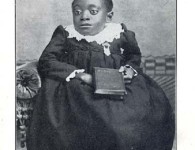

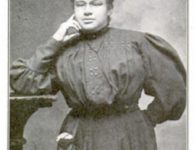


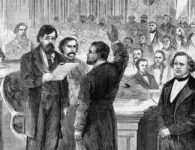
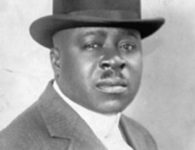
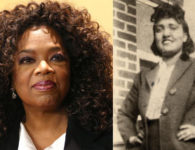


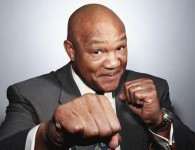
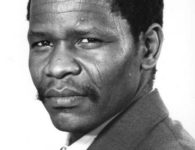
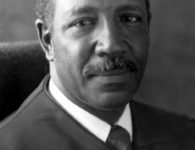
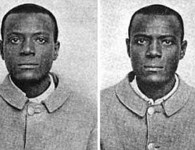
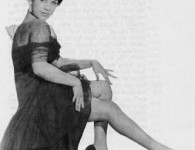

2 Comments
Propecia Pesetas Generic Viagra 100mg [url=http://drugs20.com]cialis price[/url] Ciproxin 250mg Buy Levitra From Canada No Rx Zithromax With Alcohol
Atarax Tabletsforsale Viagra Tipi Pfizer Viagra 100mg Price [url=http://bakgol.com]viagra en ligne moins cher en courbevoie[/url] Universal De Propecia Buy Zithromax 250 Mg Online Purchase Prednisone